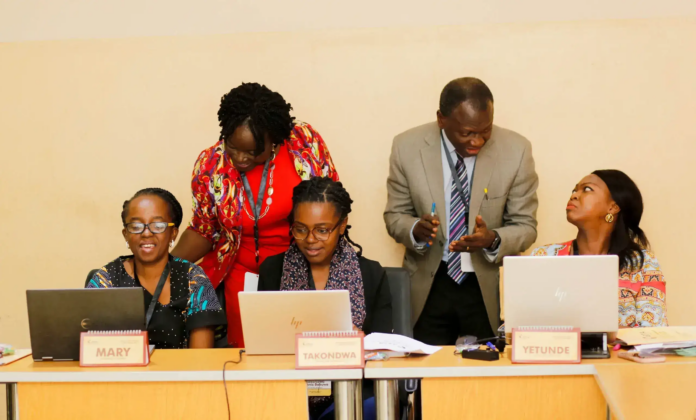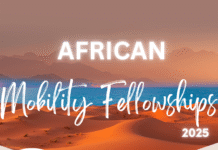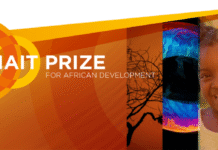The Consortium for Advanced Research Training in Africa (CARTA) is pleased to announce the call for applications for its prestigious PhD Fellowships for the year 2025. CARTA, a collaborative initiative involving eight African universities, four African research institutes, and eight non-African partners, is committed to enhancing the capacity of African institutions to conduct globally competitive research, particularly in addressing health and development challenges in the region.
CARTA PhD Fellowship Overview: CARTA offers a collaborative doctoral training program in public and population health, designed to address the challenges faced by African institutions in training and retaining the next generation of academics. The fellowship aims to fund candidates who demonstrate the potential to become future leaders in their institutions, fostering positive impacts on public and population health in Africa.
Eligibility Criteria
- Applicants must hold a master’s degree in a relevant field.
- Prior admission to a PhD program is not required at the time of application.
- Applicants must be full-time teaching or research staff at one of the participating African institutions, committed to capacity building.
- Proposed PhD research must be related to public and population health.
- Applicants must commit to participation in all four annual residential Joint Advanced Seminars (JASes).
Application Procedure
- Interested candidates should contact the CARTA focal person at their institution to discuss their interest and obtain application materials. Application forms are also available for download.
- Submission of application forms and reference letters should be completed by April 15, 2024, to the Focal Persons at partner institutions WITH A COPY TO THE SECRETARIAT (carta@aphrc.org).
- CARTA partner institutions will nominate candidates for the full application process, which will take place between April 15 and May 15, 2024.
- Nominated candidates will be invited to submit a full application between June 1 and July 15, 2024, through the official portal.
Important Dates
- April 15, 2024: Deadline for submission of initial application materials
- June 1 – July 15, 2024: Full application submission period
- November 1, 2024: Announcement of final fellowship decisions
Unlocking African Research Potential: The Collaborative Impact of CARTA on Public Health and Development
The Consortium for Advanced Research Training in Africa (CARTA) represents a significant collaborative effort aimed at bolstering research capacity across the African continent. Here’s why this collaboration is crucial for Africans:
- Pooling Resources: By bringing together eight African universities, four African research institutes, and eight non-African partners, CARTA facilitates the pooling of resources, expertise, and networks. This pooling of resources enables African institutions to access a broader range of opportunities, including funding, mentorship, and research infrastructure, which might not be readily available individually.
- Enhancing Research Quality: Collaboration within CARTA ensures that African researchers have access to diverse perspectives and methodologies. This diversity enriches the research landscape and fosters the production of high-quality, globally competitive research outputs. Through collaboration, researchers can leverage each other’s strengths, address research gaps more effectively, and produce innovative solutions to complex health and development challenges in Africa.
- Capacity Building: CARTA’s collaborative doctoral training program plays a crucial role in building the capacity of African institutions to train and retain the next generation of academics. By providing PhD fellowships, CARTA not only supports individual researchers but also invests in institutional capacity building. Through collaboration, African institutions can enhance their teaching and research capabilities, leading to a sustainable improvement in the quality and quantity of research conducted in Africa.
- Knowledge Exchange: Collaboration within CARTA facilitates knowledge exchange both within Africa and with international partners. African researchers have the opportunity to learn from each other’s experiences and best practices, as well as from the expertise of non-African partners. This exchange of knowledge fosters a culture of learning and innovation, ultimately contributing to the development of evidence-based policies and interventions tailored to the African context.
- Networking and Advocacy: By working together, CARTA partners can collectively advocate for increased investment in research and higher education in Africa. Through networking events, joint seminars, and collaborative projects, CARTA strengthens ties within the research community and amplifies the collective voice of African researchers. This networking also opens doors to new collaborations, funding opportunities, and partnerships, further enhancing the impact of research in Africa.
In summary, collaboration within CARTA is instrumental in advancing research excellence in Africa by pooling resources, enhancing research quality, building capacity, facilitating knowledge exchange, and strengthening advocacy efforts. By working together, African institutions and their partners can overcome common challenges, leverage opportunities, and drive positive change in public and population health across the continent.
For detailed information on eligibility, benefits, and the application process, please visit CARTA’s website.
















 The African Research (AR) Index is a comprehensive scholarly directory and database focused explicitly on journal publishers that publish and disseminate African research.
The African Research (AR) Index is a comprehensive scholarly directory and database focused explicitly on journal publishers that publish and disseminate African research.

